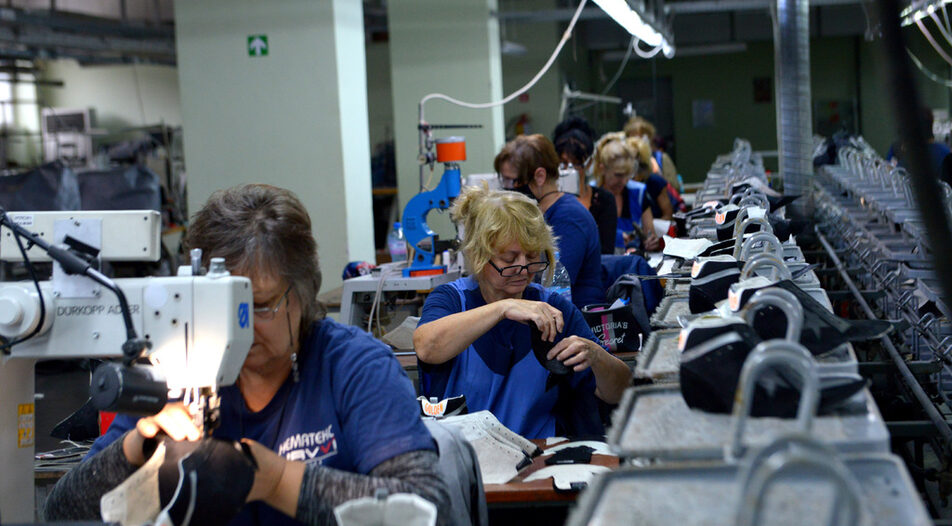Businesses in Bulgaria plan no large-scale investment in 2022 when they expect inflation to accelerate, a new survey has shown. Uncertainty due to the Covid crisis, a shortage of energy and raw materials and their rising prices, blocked supply chains and expectations of a global economic slowdown are all factors that worry the representatives of local businesses polled by the Bulgarian Industrial Association (BIA).
The annual survey of 817 companies showed that businesses are more optimistic in comparison with 2020 because the companies have adapted to the new reality after the first Covid shock and their managers already operate them complying with the new environment.
Yet, the participants give a predominantly negative assessment of both the business climate and the condition of their own companies. In December 2021, the business sentiment index measured by the National Statistical Institute went up 2.6 points compared to November. Improvements can be seen in the construction, retail and services sectors, while a decline was registered in manufacturing.
The problems
The three biggest challenges for companies last year remained the same as 2020. The Covid crisis has created a shortage of working capital in almost 80% of enterprises. This, combined with years of problems with bureaucracy, regulatory and administrative burdens, an unstable regulatory environment, corruption and inefficient judiciary, puts any business under heavy pressure. The lack of qualified staff also continues to be a problem for two-thirds of companies, the survey shows.
The Association points out that the Covid crisis in 2020 has seriously affected the companies' performance, all of which marked a drastic decline in key indicators compared to pre-crisis 2019 - production volumes decreased in 60% of companies, turnover fell in 66% of them, their foreign markets shrank by in 36% and the number of jobs dropped in 47% of the polled companies.
"Compared to 2020, there is a slight improvement in all these indicators, but the picture is still very worrying," said BIA. The survey also shows that companies are still cautious and do not dare to resume their investment policy. The main reason is Covid, but it was exacerbated by three general elections in a year, which made the environment unpredictable.
The general feeling is that the support measures by the government are insufficient and slow, BIA noted in a press release. Therefore, it is not surprising that less than half of the companies have benefited from some of the anti-crisis measures, especially those intended to support employment. Meaningful measures to support corporate liquidity are either missing or are not attractive and well-known enough, BIA pointed out.
As a result, businesses are trying to save jobs and keep market positions by adapting costs, transforming production, using digital technologies, online sales, and flexible working hours. So it is not surprising that businesses give a low assessment of the anti-crisis measures - only 19% of respondents are satisfied with economic measures, while 27% approve of the anti-epidemic measures.
Against this background, the cases of uncollected receivables from counterparties are decreasing, marking the largest decline for the last 10 years. According to BIA, the presumed reason for this is the stricter financial discipline imposed by the crisis.
Wages still growing
Despite the crisis, almost half of the surveyed companies increased salaries last year, whereas 14% decreased them. According to BIA, the growth is probably due to the increase in the government-regulated minimum wage. The caretaker cabinet proposed to increase the minimum wage to 750 levs (325 euro) in 2022 but the new coalition government that took office in mid-December opted for an increase to at least 700 levs compared to 650 levs in 2021. However, half of the companies expect to pay more for goods and services in 2022 which will fuel inflation.
Energy woes
The pessimism comes mainly because of the drastic rise in the prices of energy resources and raw materials at both national and global level. The survey shows that high energy costs are a serious problem for 89% of companies, forcing them to increase the prices of their products (62%), cut other costs (41%) and staff (14%), and one in four companies has to reduce orders.
According to the respondents, they expect direct financial support from the government and restructuring of the energy system and the energy mix. Among the urgent measures is the introduction of a mechanism for concluding long-term power supply contracts for business users.
Expectations for 2022
The businesses are more optimistic about 2022 but the uncertain environment leads to moderation in business development plans in this new year. BIA points out that only between 35 and 42% of the surveyed companies plan production growth, new products or services or entering new markets, while in the pre-crisis 2019 they were 57%.
An average of 20% of respondents plan investments in production facilities and innovations in 2022, while in 2019 the average percentage was almost twice as high (38%).
Businesses in Bulgaria plan no large-scale investment in 2022 when they expect inflation to accelerate, a new survey has shown. Uncertainty due to the Covid crisis, a shortage of energy and raw materials and their rising prices, blocked supply chains and expectations of a global economic slowdown are all factors that worry the representatives of local businesses polled by the Bulgarian Industrial Association (BIA).
The annual survey of 817 companies showed that businesses are more optimistic in comparison with 2020 because the companies have adapted to the new reality after the first Covid shock and their managers already operate them complying with the new environment.












